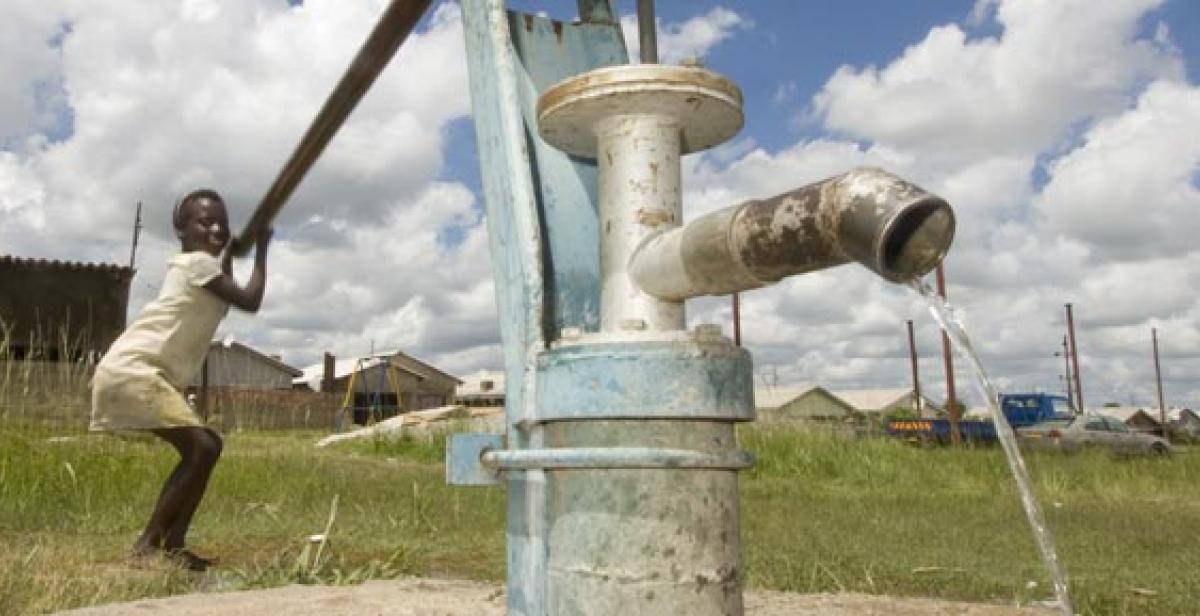I’m at World Water Week in Stockholm. A diverse array of key players has gathered for wide ranging discussions on major issues and trends affecting the water sector. The location is apt for talking about water. But whilst the annual conference is held in a city renowned for its abundant clean and open water, it is water scarcity that is dominating the conference agenda.
Feeding the world depends on water
The theme this year is food security. Food security is inextricably linked to water security. Water scarcity is already having an impact on food production and this situation is set to worsen with population growth, climate change, the drive for economic growth, shifting consumption patterns, decreasing availability of land and relatively low level of investment in agriculture.
As Progressio’s ‘waterproof development’ campaign has emphasised, water is essential to lives and livelihoods. The nexus – the interconnectivity between food (land and agriculture), water and energy – is a hot topic here. Our rights to food and energy cannot be realised without access to water and the demand for water, energy and food are all set to increase over the coming years.

Every day as I’ve entered the conference centre I’ve walked past a poster display of the invisible water that we eat every day (see photo above). Progressio has been highlighting the issue of ‘virtual water’ for several years. Indeed, this week Progressio launched a video highlighting the water footprint of our food. Awareness of our consumption of vast amounts of imported water is gradually rising. Frequently cited examples are, if you drink a cup of coffee today then that took 130 litres of water to produce, or if you’ve eaten a hamburger recently then you ‘consumed’ an additional 2,400 litres of water.
Why not take the Progressio waterproof challenge - find out how much 'virtual water' you are consuming, and challenge yourself to halve the water you eat!
Food waste is water waste
Not to mention the amount of virtual water that gets thrown away. It’s been said this week that half of the irrigation water used around the world is lost to wasted food – the equivalent every year to half of Lake Victoria (Africa’s largest lake) or 365 trillion gallons of water.
Collaboration is key
All of this has created an atmosphere of heightened urgency at World Water Week. More than ever before, solutions for increasing efficiency (which in terms of food production is referred to as ‘more crop per drop’) and decreasing waste and contamination are needed… and fast. However, my conversations with people in business, academia, civil society and government have kept stumbling upon the same critical factor: the will by all stakeholders to implement change. The implementation of solutions requires action by all, including national and local governments, civil society and the private sector. The power of partnership has regularly been showcased this week.
The social impact of scarcity
Whilst I’ve heard much talk this week of the environmental sustainability and economic risks of water insecurity, I’ve not heard enough about the direct impact on people living in poverty. I’ve been here to learn and share about how water scarcity is affecting the communities that Progressio works with, to discuss what Progressio is already doing about it, and what Progressio and others can be doing about it in the future.
Issues around responsible stewardship and water resource management are extremely pertinent to poor and marginalised communities, especially women as they are the primary water managers at the household level. We know that they are the first to lose out when there is competition over scarce water resources. Water management at the local level is fundamentally important and must involve the participation of local communities. Progressio partner Aquafondo in Peru is already showcasing how this should be done. But World Water Week serves as a reminder of the fact that there is a desperate need for the scaling up of this sort of engagement with those at the sharp end of water scarcity.
The bottom line is that water is a finite resource and it is running out. Without water food production will suffer. The clock is ticking to implement sustainable, equitable and efficient solutions. After all, as one World Water Week delegate remarked yesterday, “if we don’t find solutions to the global water crisis, then military force will”. Conflict over water is already a reality and is set to escalate.
Lis Martin is Progressio's Environment Policy and Advocacy Officer.
Photo: Virginia Jarusa (age 11) using a water pump at Chitungwiza village, Zimbabwe (photo © Macpherson Photography/Progressio)
Take the Progressio waterproof challenge - challenge yourself to halve the water you eat!



